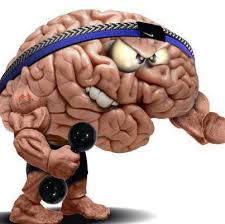
Jan 17: Not just doing bench presses and cardio, but your brain’s functioning is what helps your body lose fat and control weight. According to a recent research conducted at Monash University, our brain regulates and helps our body to burn fat. The researchers have explored how two hormones in the brain aid the body to burn fat.
How brain helps in losing weight?
Two hormones released by the brain namely, leptin and insulin jointly work towards converting white fat into brown fat. Leptin is an appetite suppressant produced in fat cells whereas insulin is generated in the pancreas in response to increased glucose levels in the blood. In fact the molecular mechanisms of these two hormones act in conjunction on a group of neurones to help the body burn fat through the nervous system.
According to the lead researcher Professor Tony Tiganis, from the Department of Biochemistry and Molecular Biology, the finding of the joint action of these two hormones might help in the burning of the excess fat in the body. Here are few exercises that could help you to boost your brain power.
So should you train your brain to burn more fat?
Going by what the researcher say, fat in the human body of the adults is usually deposited in adipocytes specialized cells that contain white fat. They also added that around the neck and shoulders, there is a second form of fat, which is made of brown adipocytes. These cells can be induced to burn the fat rather than storing it. The scientists revealed that leptin and insulin interact with proopiomelanocortin (POMC) neurons in the brain’s hypothalamus, making them send signals through the nervous system, stimulating the conversion of white fat into brown fat. This results in burning off of the excess fat in the human body.
How does the brain really work while helping to lose weight?
During the research the scientists managed to show that the process gets regulated in these neurons with the help of the enzymes known as phosphatases, which inhibit the actions of each of the hormones. When the levels of these inhibitors were decreased, the browning and burning of fat increased. According to the lead researcher, Tiganis, this important mechanism normally helps to maintain body weight but in the situation of diet-induced fatness this process goes haywire.






Comments
Add new comment